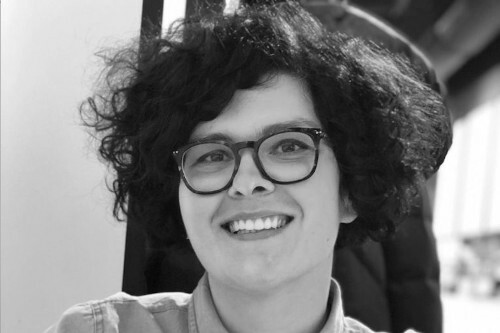
Marija Andrijašević
Marija Andrijašević was born in Split in 1984. She has published a collection of poems David, They Have Done Things to Me which got the Goran award for young poets in 2007 and novel Land Without Sunset in 2021. Selected poems from the collection have been included in several national anthologies and translated into many foreign languages. She graduated from Split Trade School in 2001 and completed the fourth year in an evening school in Zagreb in 2008. She majored comparative literature, ethnology and cultural anthropology at the Faculty of Philosophy in Zagreb in 2015. She also completed a two-semester program of the Centre for Women’s Studies in Zagreb in 2016.
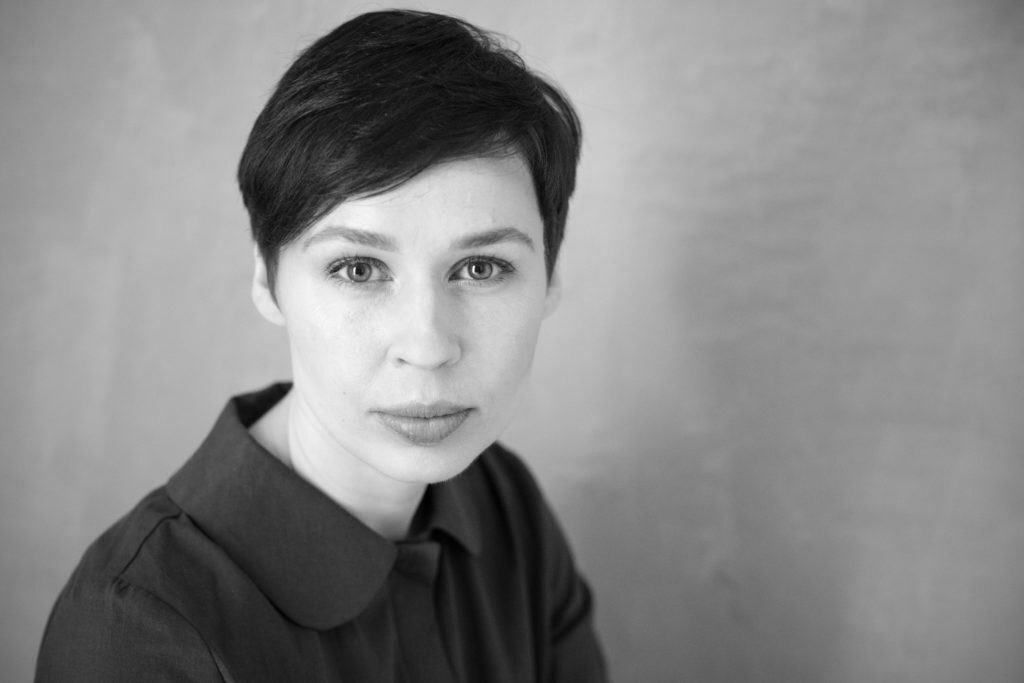
Sofia Andruchowytsch
Sofia Andruchowytsch was born in 1982 in Ivano-Frankivsk, Ukraine. She has authored six books of prose to date: Milena’s Summer (2002), Old People (2003), Wives of their Husbands (2005), Salmon (2007), Felix Austria (2014), and Amadoka (2020). She is also an author of the book for children “Hen Constellation” (2015). Her works have been translated into English, Polish, German, Czech, French, Hungarian, Serbian, and other languages. She is also an author of essays and a translator. Lives in Kyiv.
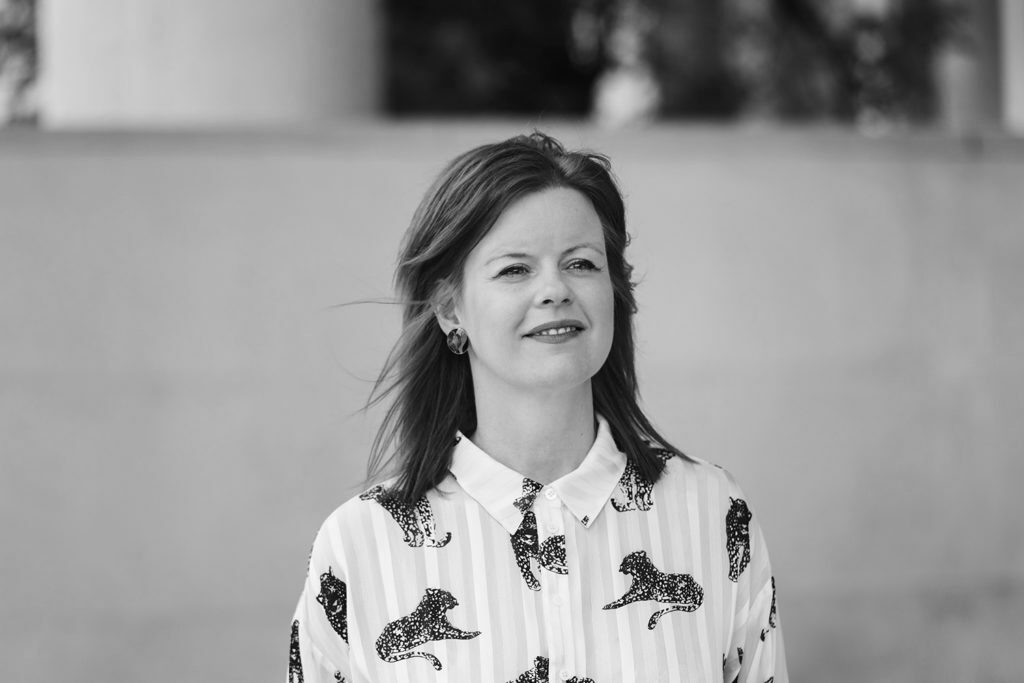
Gabriela Babnik Ouatarra
Gabriela Babnik Ouattara (1979, Göppingen) has written five novels and one short story collection. She also writes radio dramas and occasionally translates the works of African authors. She won the 2013 EU award for literature for the novel – Dry Season translated into 15 languages. She won the Stritarev award for young critics, too.
She is currently writing a novel about Baudelaire and his mistress Jeanne Duval called Silence, Full of Wind (Beletrina, 2022). She translated from Kenyan into Slovene Binyawange Wainaine’s novel One Day I Will Write About This Place . She works as an editor in the Maribor publishing house – Litera.
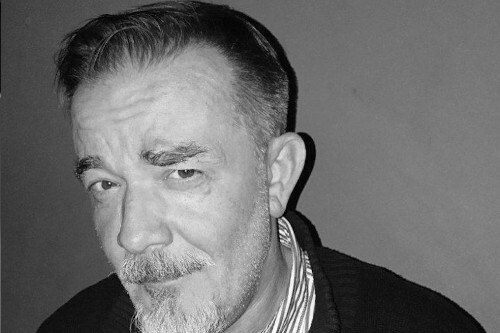
Renato Baretić
Renato Baretić was born in Zagreb in 1963. As of 1983 he has been living solely from writing – mostly as a journalist in various Croatian and foreign media, but also as a novelist, poet, quiz questions compilator, creative writing teacher, TV and movie screenwriter, (co)author of theatre plays… He was the co-founder and art director of Pričigin, the Festival of Storytelling in Split, for the first 10 years. He has been living in Split since 1996.
His three previous novels – Eighth Commissioner, Tell Me About Her and Hotel Grand – have been translated into numerous foreign languages and re-published in Croatia many times.
His other works include: Words from Pockets (collection of poetry), Who Will We Send Postcards To (collection of poetry), Frame Frames , a selection of columns about television, Split for Beginners – the Alphabet of the Town, educational funny guidebook (co-author with Ivica Ivanišević ), Torment of a Small Wolf , a picture book (illustrated by Davor Schunk), Let’s Go to the Cinema!, a short history of cinematography and film in general for elementary school students (illustrated by Luka Duplančić), Downstream with the Heart , accompanying texts in Igor Tomljenović’s Photo monography and Jadran Lazić – 50 Years of Photography (co-author with Jadran Lazić).
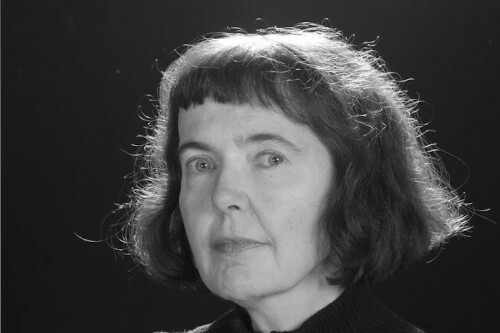
Gordana Benić
Gordana Benić was born in 1950 in Split. She majored literature and philosophy at the Faculty of Philosophy in Zadar and completed her postgraduate course in literature at the Faculty of Philosophy in Zagreb. Her poetry found place both in national and international anthologies of Croatian poetry. Her poems were translated into a dozen languages. The book Shadow Blacksmiths , a selection of poems in French was published in 2014 by L’Ollave.
Gordana Benić in her works branches a specific kind of illusionism by varying apocryphal and surreal maps, which introduced her specific poetics of space romanticism in spaces of great lengths and spaciousness.
She has published 20 prose poem collections and a book of opinion journalism.
In 2018, the documentary Grounded Universe was filmed, after the motives in her poetic tetralogy on Diocletian’s Palace.
She has won several awards: Tin Ujević, Vicko Andrić and Goran’s Wreath as well as the award for literature of the Croatian Academy of Science and Arts and the poetic award Kvirin.
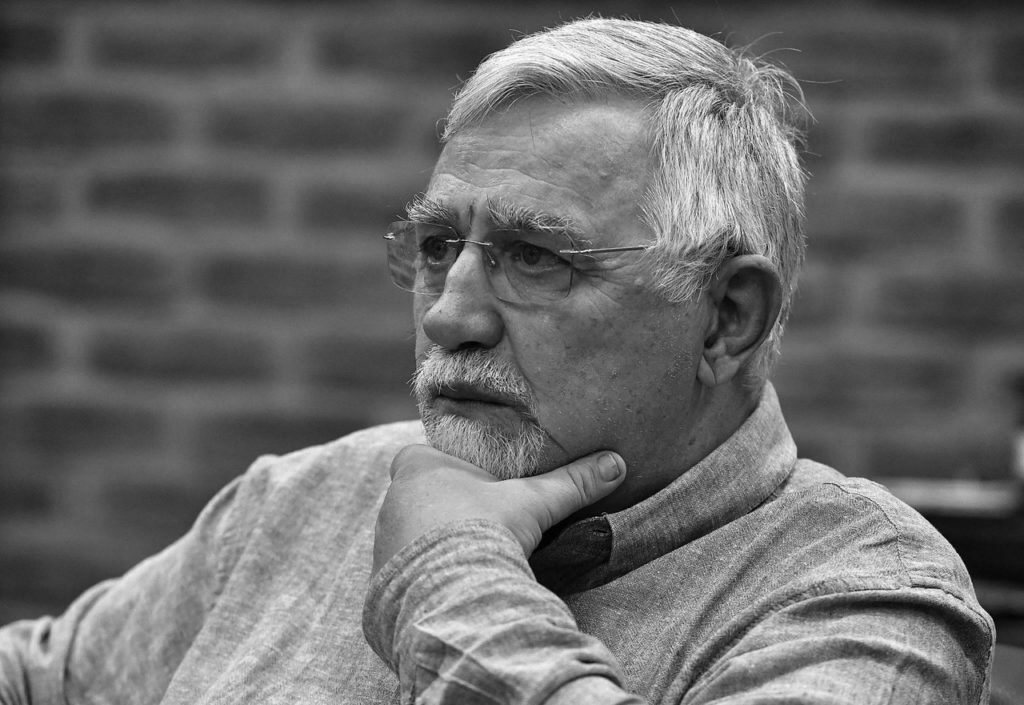
Inoslav Bešker
Inoslav Bešker (Zagreb, 1950) is a philologist and journalist of various interests, among which anthropology of religion.
He was born in Split where he spent his formative years and went to secondary school. He majored sociology at the University of Zagreb as well as gained a master’s degree in journalism. He got his doctor’s degree at the University of Milano in comparative Slavic studies.
He is a scientific adviser for philology and senior scientific associate in ICT sciences.
He has been a journalist since 1967 and correspondent from Rome since 1989. He taught southern Slavic languages and literature in Italy from 1996 to 2013 (L’Orientale in Naples, La Sapienza in Rome, Alma mater in Bologna). He teaches Slavic literature and Croatian language in Croatia since 2009 (tenure professor at the University of Split since 2013).
He is professor of communication sciences at the University of Dubrovnik and co-director of the Annual international conference of journalism and information technology in Dubrovnik (IUC).
He has published scientific books and papers in each of his areas of expertise as well as more than 30000 TV enclosures. He has received many awards, among which Kiklop (for Philological Ambiguities ), Otokar Keršovani (for life’s work in journalism), Otto von Habsburg and Joško Kulušić (for human right movements etc).
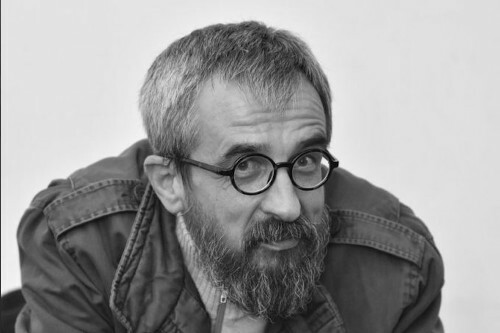
Darko Cvijetić
Darko Cvijetić was born on January 11 th 1968 in Ljubija Rudnik, Yugoslavia, today Bosnia and Herzegovina. Hs is a poet, a prose writer, director and dramatist in the Prijedor Theatre. His poems and novels have been translated to French, English, German, Slovene, Hebrew, Albanian, Hungarian, Polish, Macedonian and Yiddish. He has published two novels, a dozen books of poems, two books of short stories, he has directed plays from Beckett to Checkov in regional theatres and played the roles of Raskoljnikov, Boris Davidovič Novski, Estragon, Clow…
He published his books in Zagreb, Ljubljana, Belgrade, Sarajevo, Banja Luka, Skopje, Hamburg, Udine, Gdansk, Zenica… He considers himself to be “a post Yugoslav writer”.
He learned both gardening and theatrology from the Master Leon Weiss. He won the award Kočić’s Feather for the novel Schindler’s Lift as well as the Croatian book award Fric .
The Sarajevo Chamber Theatre started working on a play after the motives of Schindler’s Lift, directed by Kokan Mladenović from Belgrade. Darko Cvijetić is a member of P.E.N. Centre BiH, Writer’s Society BiH and Croatian Writer’s Society.
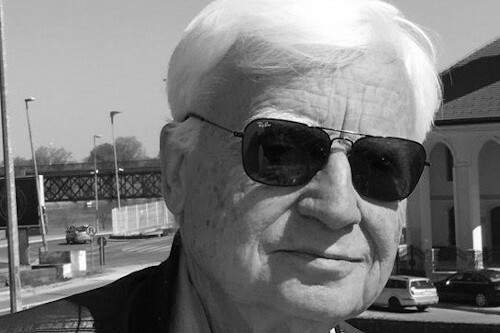
Ivan Čolović
Ivan Čolović was born in 1938 in Belgrade. He is a political anthropologist, publisher and writer. He has published approx. 20 books, among which: Death on the Kosovo Field . History of the Kosovo Myth (2017), Pictures and Forms. In Order of Appearance (2018) and Text Virus. Essays on Political Anthropology 4 (2020).
Some of his books have been translated into English, French, Greek, Italian, Macedonian, German, Slovene and Polish.
Čolović founded and edited (1971), while from 1989 published the book editions under the title Biblioteka XX vek (20 th Century Library). He has won several acknowledgements, among which the Herder award (2000), Medal of Knights of the Legion of Honour (2001), the title of honorary doctor at the University of Warsaw (2010) and the Mirko Kovač award for his book Death on the Kosovo Field. History of the Kosovo Myth (2017).
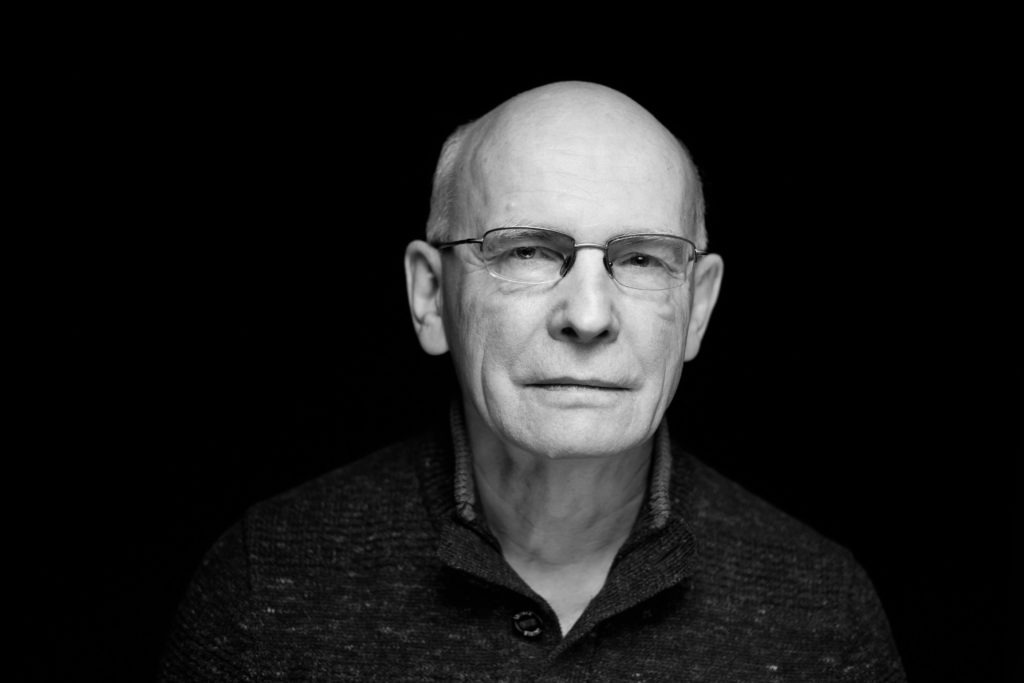
Mladen Dolar
Mladen Dolar is a senior research novice at the Department of philosophy of the University of Ljubljana. The primary fields of his research are: psychoanalysis, modern French philosophy, German idealism and art theory. He taught at universities in the US and all across Europe, wrote more than 150 articles in scientific magazines and collected volumes.
In addition to 14 books in Slovene, his editions include popular publications like – A Voice and Nothing More and Opera’s Second Death with Slavoj Žižek. His new book The Riskiest Moment is soon to be published in Duke University Press edition. He is one of the founders of the “Ljubljana Lakan School”.
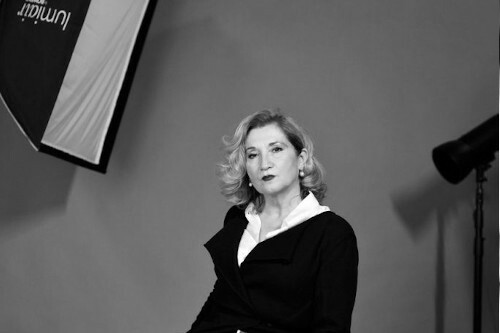
Mirjana Dugandžija
Mirjana Dugandžija was born in Požega in 1960. She majored comparative literature and philosophy at the Faculty of Philosophy of the University of Zagreb. She is a journalist, dealing with the subjects on culture. She worked in Vjesnik, Nacional and Globus while she currently works in Jutarnji list. She published the novel “Several Days of August” which entered into the finale of all major literary awards in Croatia. It was published in Belgrade (Rende) and Skopje (Makedonska reč) in Macedonian. She published a book of columns and short stories “The Night of the Indian” and a collection of stories – “September Swimmer”. She publishes her prose in Književna republika, Europski glasnik, on the third programme of the Croatian radio… She lives in Zagreb.
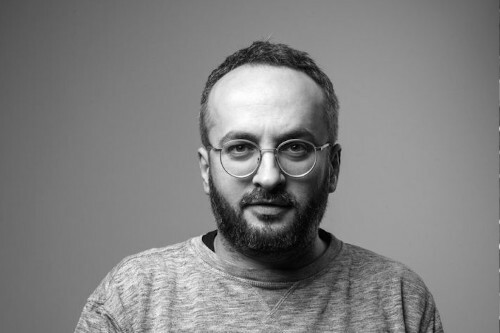
Goran Ferčec
Goran Ferčec (Koprivnica, 1978) writer, playwright and dramatist on performance and theatre projects. He graduated dramaturgy at the Academy of Dramatic Arts in Zagreb. He publishes his texts in national and international magazines as well as the 3 rd Programme of the Croatian radio. He wrote the novel There’s Not Going to Be a Miracle Here (Fraktura, 2011). That same year, at the Zagreb Youth Theatre his play A Letter to Heiner Müller was performed, directed by Bojana Đorđeva. The text Radnice (Workers) was performed in 2014 as part of the Vor den Hunden programme in co-production of the Fringe ensemble from Bonn and Schaubüne Lindenfels from Leipzig. The text was also performed as a radio play on the 3 rd programme od Croatian radio directed by Franka Petrović.
He won the Austrian cultural forum award in 2007, the Croatian Actors Society award in 2014, the Festival of Borštnik encounters in 2014 and 2015 and the Veljko Maričić award in 2011. His texts have been translated to German, Hungarian, English, French, Slovene and Macedonian.
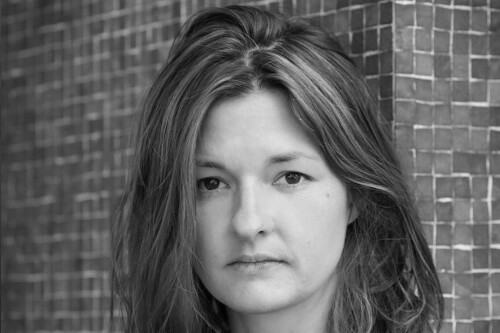
Laura Freudenthaler
Laura Freudenthaler was born in Salzburg in 1984. She majored in German studies and philosophy and gender studies. She lives in Vienna. In 2014 she published her first short story collection Madeleine’s Skull . She won the Bremer award for literature in 2018 for her novel The Queen is Quiet , published in 2017. That same year, the novel got acclamation for the best German debutant novel at the Festival du Premier Roman in Chambèry. She published the novel Story of Ghosts in 2019, for which she won the EU award for literature.

Ivica Ivanišević
Ivica Ivanišević was born in 1964 in Split. He majored sociology at the Faculty of Philosophy in Zagreb. He was a journalist and editor for Nedjeljna Dalmacija, Feral Tribune and Slobodna Dalmacija , where he comments today.
He has published the following books: Smoje – Biography (Vuković & Runjić, 2004), A Hundred Darn Hartshorns (essays on comics, VBZ, 2004), Umbrella Association and Other Play (co-author with Ante Tomić, Fraktura, 2005), Split for Beginners – the Alphabet of the Town (co-author with Renato Baretić, Znanje, 2015), Entrance for Children and Soldiers (short stories, Hena com, 2015), It’s Very Tight for Two in the Saddle (novel, Hena com, 2016), Discharge Letter (novel in letters, co-author with Marina Vujčić, Hena com, 2016), Primavera (novel, Hena com, 2017), Complaint Book (novel, VBZ, 2016), I Bow (novel, Hena com, 2017), House (novel, VBZ, 2019), Tomorrow is a New Lunch (novel, VBZ, 2020), Ferdo Pomykala 17 Street (novel, VBZ, 2021).
He writes theatre and radio plays as well as TV and film scripts.
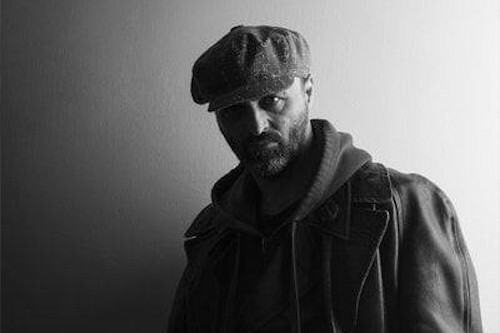
Damir Karakaš
Damir Karakaš was born in 1967 in Plašćica, a village in Lika. He has published a travelogue named Bosnians are Good People, collection of stories Eskimos , Colonel Beethoven and Cinema Lika , after which a popular film of the same name was filmed. He has also published several novels; Kombetar, How I Entered Europe, A Great Place for an Accident, Blue Moon, Remembrance of a Forest , Celebration , after which a film is being filmed in spring and the newly published novel Turnaround .
He writes theatre plays which are being performed in Croatia and abroad. He has won several national and international book awards; his works have been translated to a dozen languages. He lives in Zagreb.
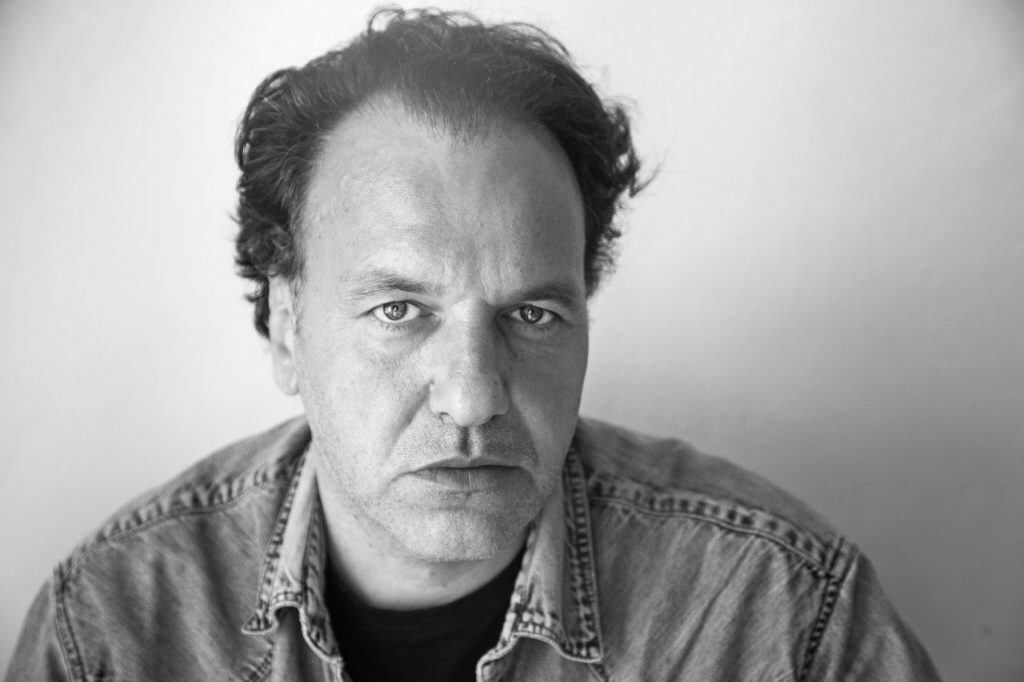
Đorđe Matić
Dorđe Matić is a poet, essay writer and critic, born in 1970 in Zagreb where he grew up. Since 1991 he has lived in Italy and the Netherlands, where he studied English and Italian literature. He has published books of poems Lingua Franca and Haarlem Nocturne, essays on music The Secret Life of Songs – Croatian 90s popular music , Secret Liaisons as well as a collection of essays on Serbian culture History and Contemporaries .
Two of his books of essays have been published in 2020: in French Faces of Silence and in Serbian Shadows of Our Predecessors: Taken from Oblivion.
His new poetry book The Other Sound was published in February 2021.
He is the co-author and editor of the YU Mythology Lexicon as well as the co-author (with Merima Ključo) of the trilingual music manual Eastern European Folk Tunes .
He has edited a few journalistic books as well as works from the area of historic sciences. He has translated from and to English, Italian and Dutch.
He is a permanent associate of the Zagreb magazine Prosvjeta (Education) and web portal Oko (Eye) of the Serbian Radio Television.
After almost 3 decades of living in the Netherlands, he moved and now lives in Poreč.
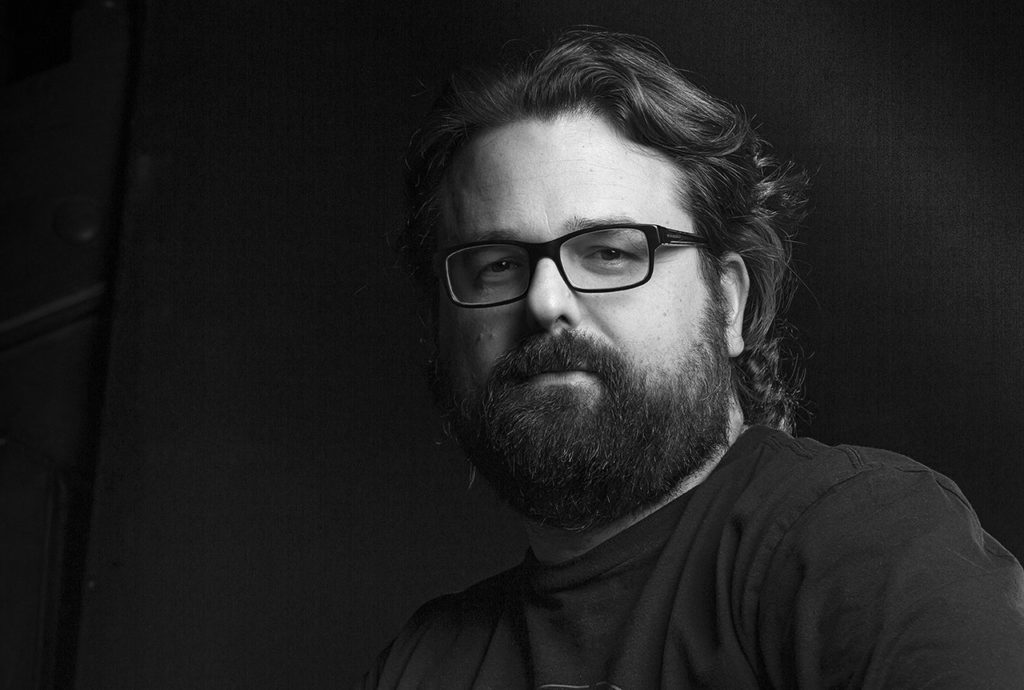
Andrej Nikolaidis
Andrej Nikolaidis was born in Sarajevo in 1974. He has published the following books: Essays On Indifference, Why Mira Furlan, Seattle Cathedral, They!, Mimesis, Son, Arrival, Poetics of the Apocalypse, Nine, Guard Shift, The Hungarian Sentence, Departure and Montenegro: The Chronicle of Downfall.
He has received many recognitions for his literary work, among which: EUPL award for literature in Brussels, Meša Selimović award in Tuzla and the Montenegro state award Miroslav’s gospel.
He works as a columnist for the Montenegrin portal CDM. He used to write for AlJazeera Balkans, Slobodna Bosna, Monitor, Vijesti, Mladina, Žurnal.info… He published in New York Times and The Guardian. His novels have been translated to 14 languages. He lives in Ulcinj.
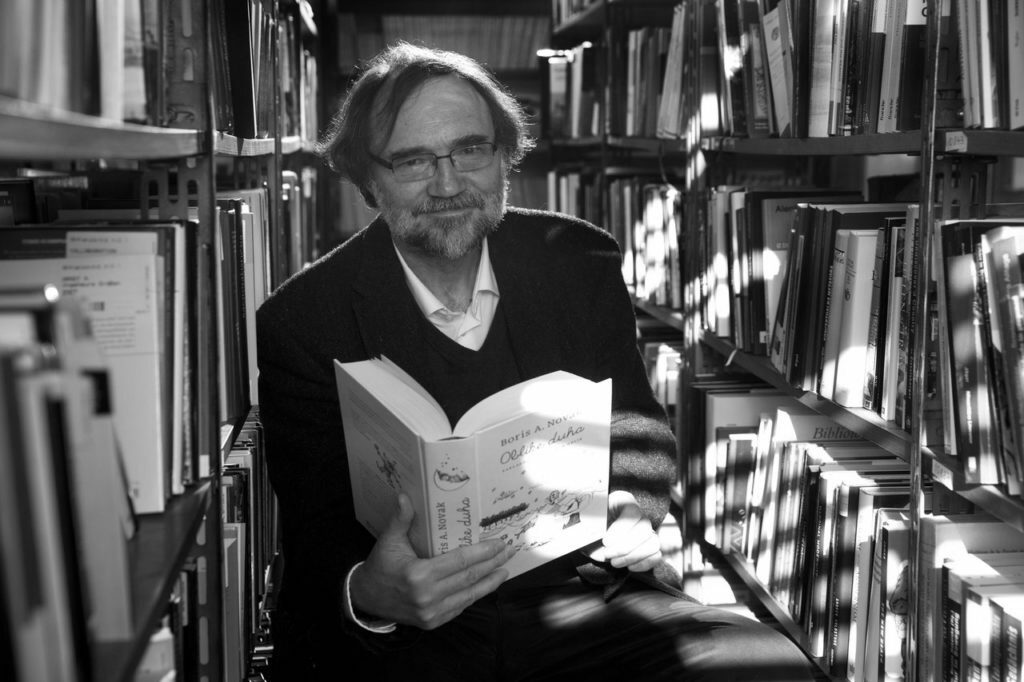
Boris A. Novak
Boris A. Novak, Slovene poet, playwright, comparative literature and literary theory professor at Faculty of Philosophy of the University of Ljubljana, was born in 1953.
He is the author of the following poetry books: Daughter of Remembrance, 1001 Verse, The Crowning, The Gardener of Silence, The Master of Insomnia, Alba, Heat, Forgiveness Rituals, Palm Cloth and MOM: Little Personal Mythology , tragedy in verse Kasandra , and numerous children poetry books as well as puppetry and radio plays.
His poetic form manuals are also very popular World Forms , Heart Forms and Spirit Forms . The epic poem The Door of no Return , 44000 verses on 2300 pages in three books – Maps of Nostalgia, Time of Fathers and Soul Dwelling – is considered to be his opus magnum.
He translates modern French poetry, Old Provence troubadours, American and English poets, Flemish poetry in Dutch as well as southern Slavic peoples’ poetry.
Some of his works have been published in the US, France, Croatia, Bosnia and Herzegovina, Serbia, Slovakia, Macedonia, Montenegro, Russia and Spain.
Most of his works have been translated to Croatian, the most recent one is the third book of the epic poem The Doors of no Return published by Fraktura translated by Božidar Brezinščak Bagola.
He has won many national and international awards, he is the vice-president of International PEN, associate member of the Slovene Academy of Arts as well as corresponding member of HAZU (Croatian Academy of Science and Arts) and French poetry academy Mallarmè.

Jurica Pavičić
Jurica Pavičić, Croatian novelist, playwright, short stories writer and journalist was born in 1965 in Split. He received many literary awards. His novel “Red Water” has gotten, after its French translation in 2021 awards Le Points and Grand Prix de la literature policiere – for the best European crime fiction novel.
He majored in history and comparative literature at the Faculty of Philosophy in Zagreb. He started writing film criticism for the student magazine Kinoteka during his studies. In 1989 he became literary and later movie critic for Slobodna Dalmacija and at that point returned to Split permanently. He has been writing movie reviews and columns for Slobodna Dalmacija, Vijenac, Zarez, Nedjeljna Dalmacija since 1990.
In 1992 he received the national award for film criticism Vladimir Vuković.
He has been writing the weekly column News from Lilliput since 1994 in various papers. In it he deals with society, politics and culture of war and post war Croatia. He received the Marija Jurić Zagorka award for these texts in 1996, the Veselko Tenžera award in 2002 for his contribution to journalism and in 2007 the Miljenko Smoje Slobodna Dalmacija award. He started writing for Jutarnji list in 2000.
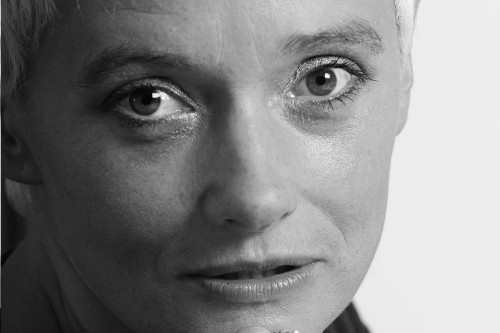
Helena Sablić Tomić
Helena Sablić Tomić was born in Osijek where she went to elementary and secondary school and graduated at the Faculty of Philosophy. She gained her master’s degree at the Faculty of Philosophy of Zagreb in 1997 with the thesis “Nineties Short Story – Library and Authors of the Quorum Magazine”. In 2001 she gained her doctor’s degree with the dissertation “Models of Contemporary Autobiographical Prose”. She teaches at the Academy for Arts and Culture in Osijek as a professor in literature and culture.
She is the first ambassador of the Desk Creative Europe for the Croatian Ministry of Culture and Media. She has written 19 books and more than 100 scientific papers. She has received 10 awards. She was the president of the Matica Hrvatska’s department in Osijek from 2003 to 2007. She was also a member of the editorial board of the Kolo magazine from 1998 to 2009. She is a member of PEN and Croatian Writer’s Society. She used to write literary criticism for Vjesnik and she now writes them for Croatian radio.
She wrote 7 scripts for documentaries.
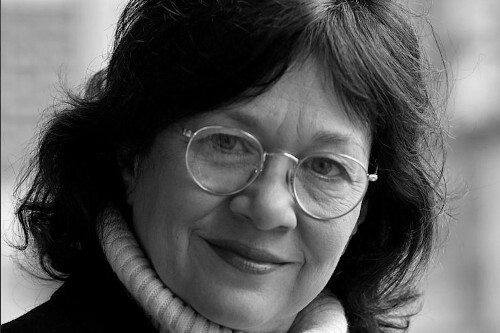
Dubravka Stojanović
Dubravka Stojanović is a professor at the Department of History at the University of Belgrade. She teaches contemporary history. She deals with problems of democratization in Serbia in the late 19 th and early 20 th centuries as well as interpretation of history in newer Serbian textbooks, the history of women in Serbia and Belgrade urbanization processes at the beginning of the 20 th century.
In 2004, she won the Belgrade award for social and humanistic sciences for her book Serbia and Democracy 1903 – 1914. A History Study on the Golden Age of Serbian Democracy.
She also won the Peace Award of the Belgrade centre for peace and democracy for her long – term work on pacification in Southeast Europe by introducing a reform in history teaching. In 2012 she won the award for Conquering freedom meant for women who fight for human rights, democracy and legal state.
She was given the medal of the Nacional Order for Merit in the rank of a knight of the Republic of France.
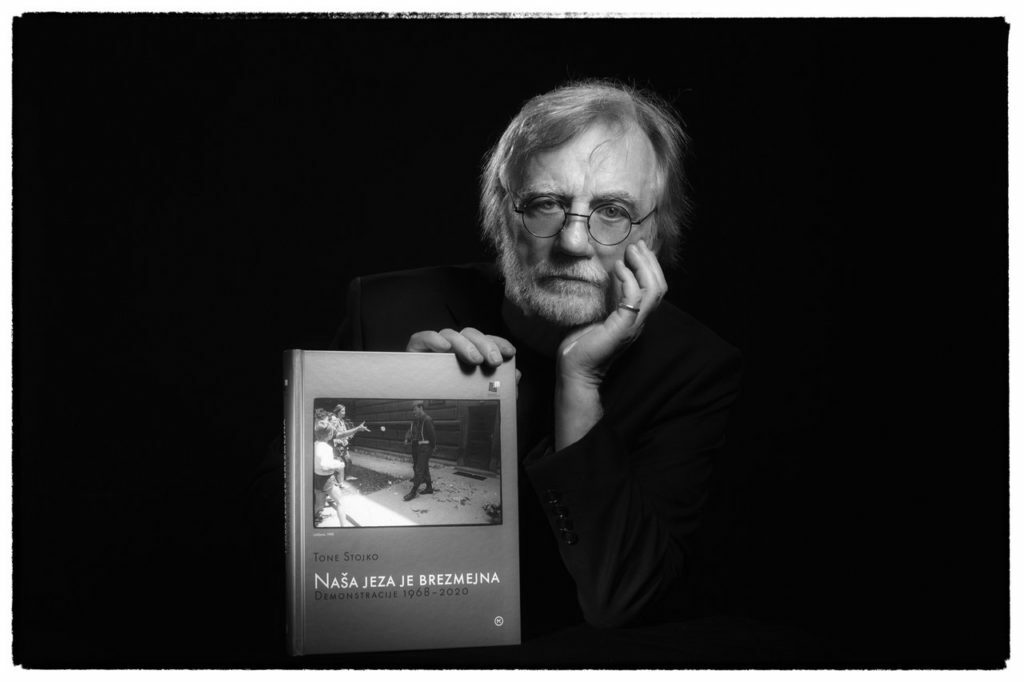
Tone Stojko
Tone Stojko was born in 1947 in Strezetina in Slovenske Gorice. He studied journalism in Ljubljana where he gained his first work experience on Slovenian Television. He took part of the excellent photography group – Fotogrupa Šolt – which formed him as a person as did the student magazine Tribune where he published his first photographs of demonstrations.
In January 1971 he became photography editor and photographer for the weekly newspaper Mladina where he continued to work for the next 25 years and 4 months.
In the same year he published his first short story collection – Last Prayer . In 1983 he set up the exhibition Theatrical Photography for which he won the Prešern Foundation award the following year.
He participated at the recording of Neca Falk’s album The Strongest Survive and the legendary musical project Muri the cat and Maca the cat as organizer.
In the stampede of the events of the second half of the 80s, he prophetically moved along in the centre of happenings in Ljubljana.
The 21 st century is also marked by Stojko’s top notch Prešern laureate portraits. The wave of new demonstrations offers plenty of motives and enriches his systematically growing fundus of demonstration photographs.
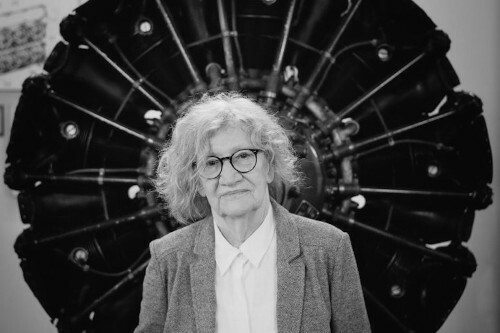
Andriana Škunca
Andriana Škunca was born in 1944 in Bjelovar. She is originally from Novalja on the island of Pag where she spent her childhood and she is now living there for the better part of the year. She studied Yugoslav studies and comparative literature at the Faculty of Philosophy of the University of Zagreb. She has published 10 books of poems which have been translated into numerous languages.
Her book The Novalja Photography has been translated to German and Czech. She collected the anthology of Croatian prose poems Our Mistress Illusion with Zvonimir Mrkonjić and Hrvoje Pejaković.
She wrote the monography Biblical Garden, The Holy Land of the Olives from Luna on wild olive grows, Luna, on the island of Pag as well as the book of poetic essays – travel diary Walking Around the Edges of the Island. Both books are illustrated with her photographs.
For her books of poetry she received the most significant recognitions: Tin Ujević award in 1999 for The Novalja Photography, while for the book of poems Yarn of Ever Narrower Days she got the HAZU (Croatian Academy for Science and Arts) 2004 and Vladimir Nazor 2004 awards. She received the Goran Wreath in 2006 for her entire poetic opus and in 2020 the Vladimir Nazor award for life’s work.
Besides poetry, she writes literary criticism and poetic records on artists. During the last 3 decades she has been noticed as a prominent artistic photographer. She has held a number of solo exhibitions in Croatia, Austria, Germany and Czech Republic. Her photos have been shown numerous times on Croatian Television in the programme Photography in Croatia . Petar Krelja made a documentary called Andriana in 2005 where he, in verse, presented Andriana as an excellent photographer.
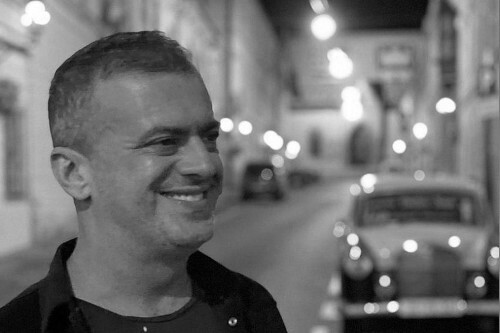
Sergej Trifunović
Sergej Trifunović was born on September 2 nd 1972 in Mostar. He grew up in Kruševac and Užica and studied in Belgrade, where he now lives. He is an actor although he sometimes finds time to write. He inherited the love of literature from his father and later developed it throughout elementary school thanks to his teacher Slavko Vasilijević, whose daughter lives somewhere in Pula.
He has played more than 80 film and TV roles, and much much more in theatre. Warehouse is his first book.
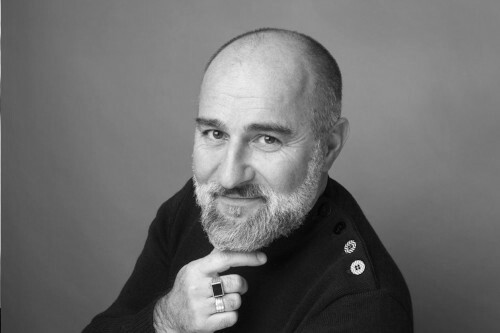
Zanzim
Zanzim’s real name is Frèdèric Leutelier. He was born in Laval on January 5 th 1972. He is currently living in Tintèniac and working in Rennes in the Pepe Martini atelier studio along with a dozen of other comics writers. He is one of the authors of Comix 2000, a joint edition published by L’Association. He has published comics Les Yeux Verts , La Sirène des Pompiers , Ma Vie Posthume with Hubert and Tartuffe with Duvalom.
He participated in the joint edition Les Gens Normaux published by Escritures .
In 2015 for Glènat publishing both as writer and playwright, he signed the renowned album L’Île aux Femmes.
The 2020 Man’s Skin album published with Hubert was sold in more than 130000 copies and has gotten numerous awards.